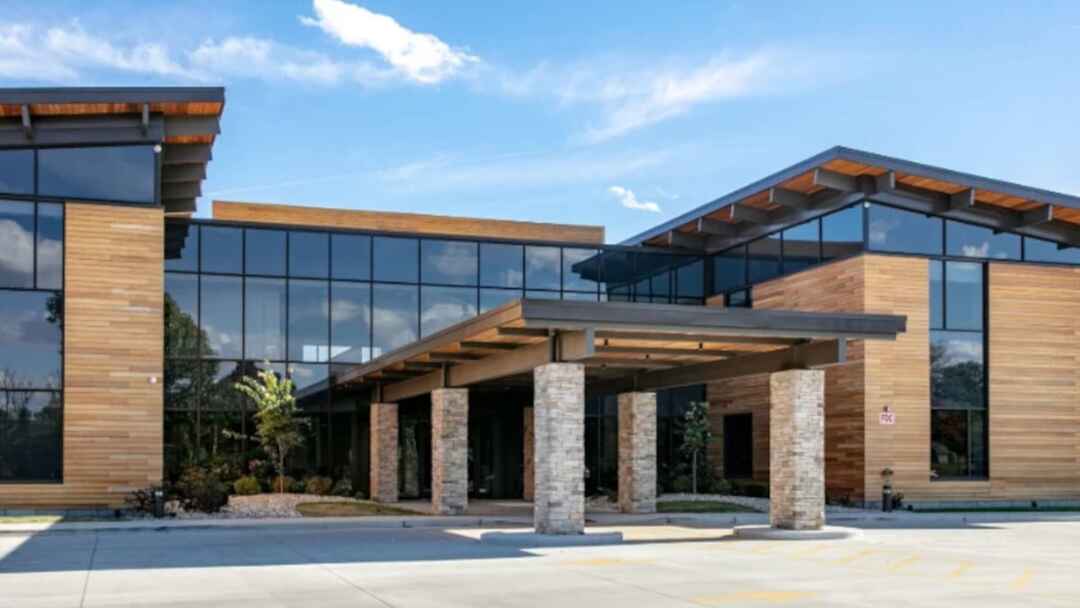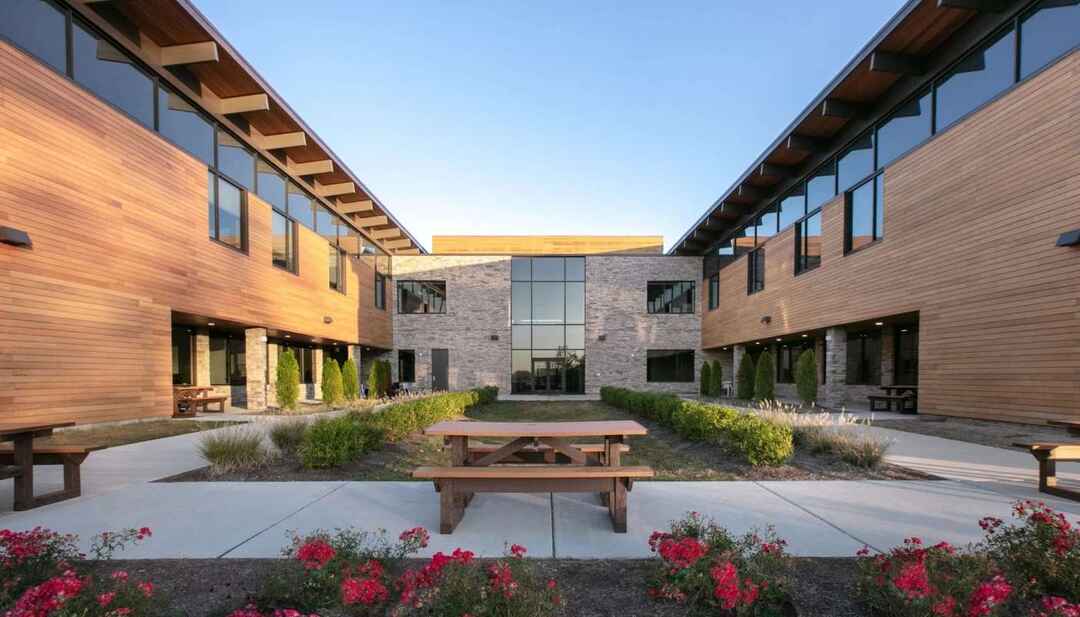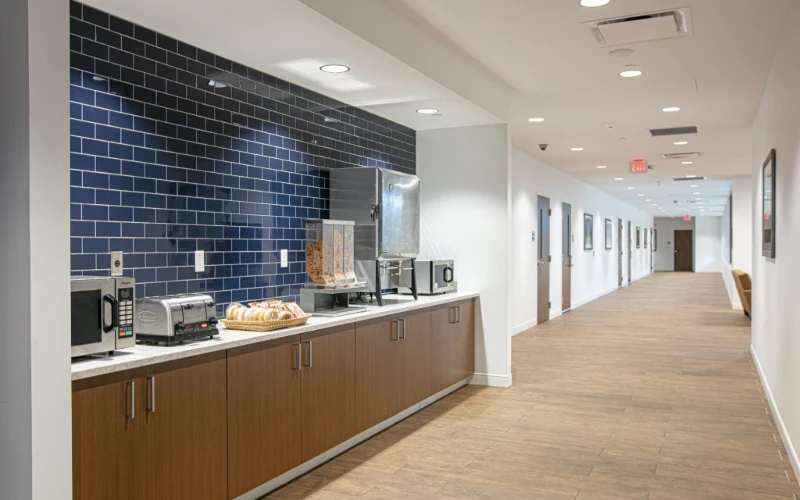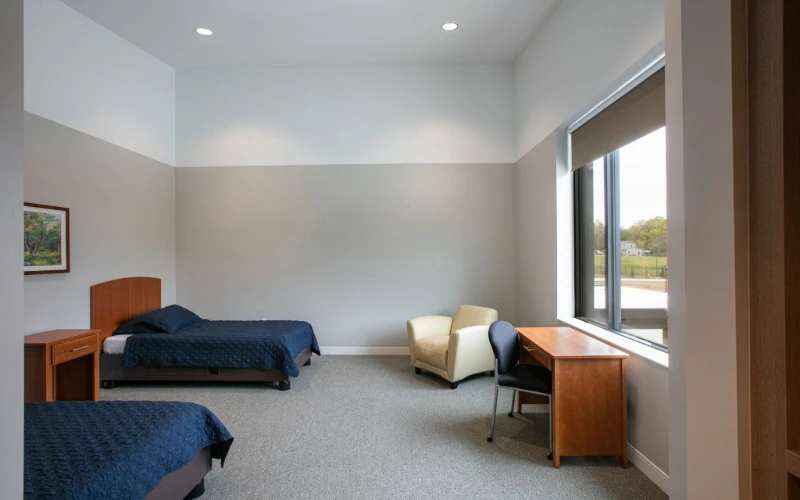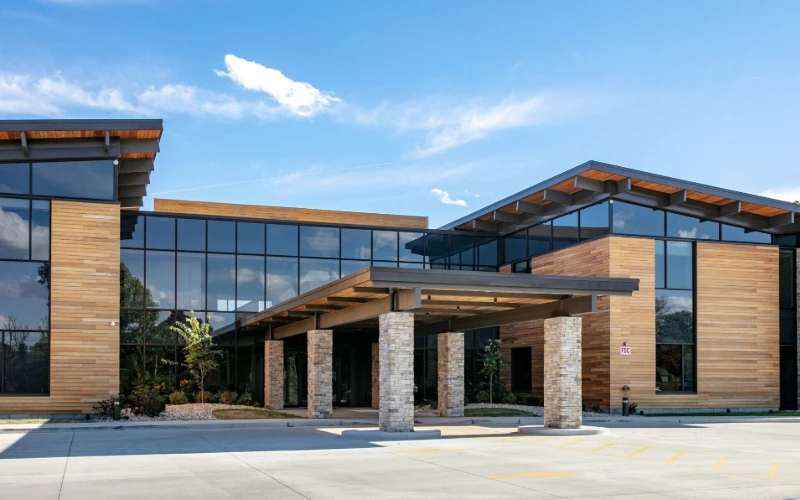About Harris House – Traditional Housing Program – St. Louis
Harris House is a private alcohol and drug addiction recovery center in Saint Louis, Missouri. They provide adult clients with personalized care that focuses on empowering clients to take greater responsibility for themselves and their care. This is a state of the art center with luxury amenities.
Harris House provides a full continuum of care to meet the complex needs of a diverse clientele. They offer dual diagnosis care services for clients with addiction and mental illness symptoms.
Medically assisted detox is the safest way for clients to remove illicit substances from their bodies. During detox, they stay at the center, where they are monitored and cared for by the medical team as they work through withdrawal. Medication may be administered to help clients with symptoms. Once they are stable, they can continue to the next level of care.
The inpatient program is a high level of care where clients reside at the facility for the length of their treatment program. To ensure the environment remains safe and supportive, staff monitor clients 24 hours daily. Clients generally do not leave the campus during treatment with staff supervision.
Therapy and education are the core of treatment at Harris House. Clients work with a personal care team to develop an individualized treatment plan focused on therapy and education groups. Clients learn more about addiction, discover their triggers, recognize and control their emotions, communicate, and develop critical hope and life skills supporting ongoing recovery and independent living.
PHP is the next level of care following the inpatient program and is sometimes used as a transitional step following a residential program. It’s an intensive day program where clients visit the facility six hours a day, five days a week, to participate in therapy and education groups. PHP also offers family therapy and education services.
Much like PHP, IOP sees clients live at home and visit the facility on a regular schedule to receive treatment. IOP meets less frequently for three hour sessions but participates in the same types of therapy and education groups.
Clients with both substance use disorder (SUD) and a mental illness such as depression, bipolar, or schizophrenia are at a higher risk of relapse. Dual diagnosis care reduces this risk by treating the symptoms of both issues during treatment. An assessment may determine if a client has a co-occurring condition, even if they haven’t been previously diagnosed.
Clients who have completed treatment can receive continuing care through gender specific subsidized transitional housing. Clients continue participating in peer support, therapy, and education groups in these community living settings. Over time they take on more responsibility to prepare for their return to independent living, such as preparing their own meals and securing employment.
